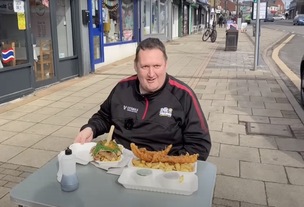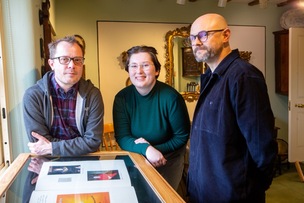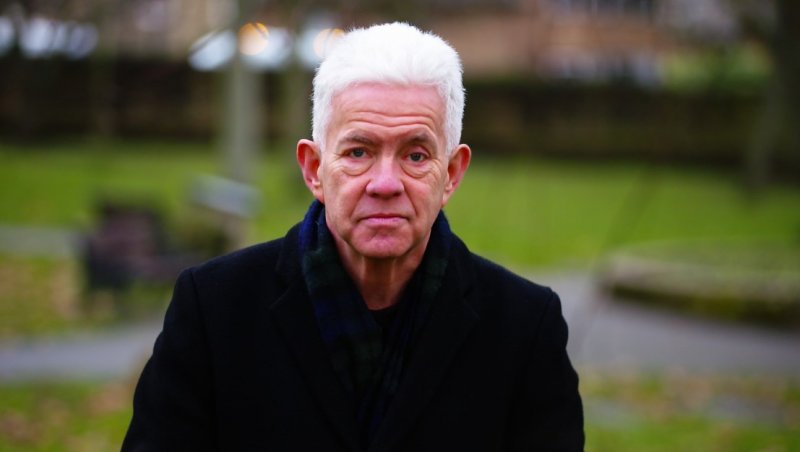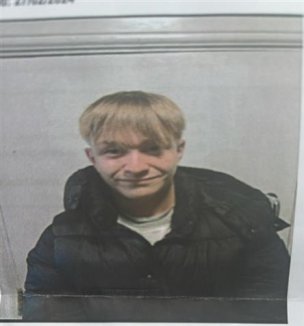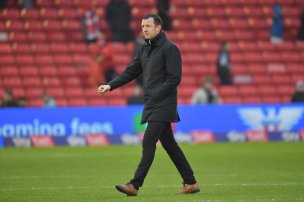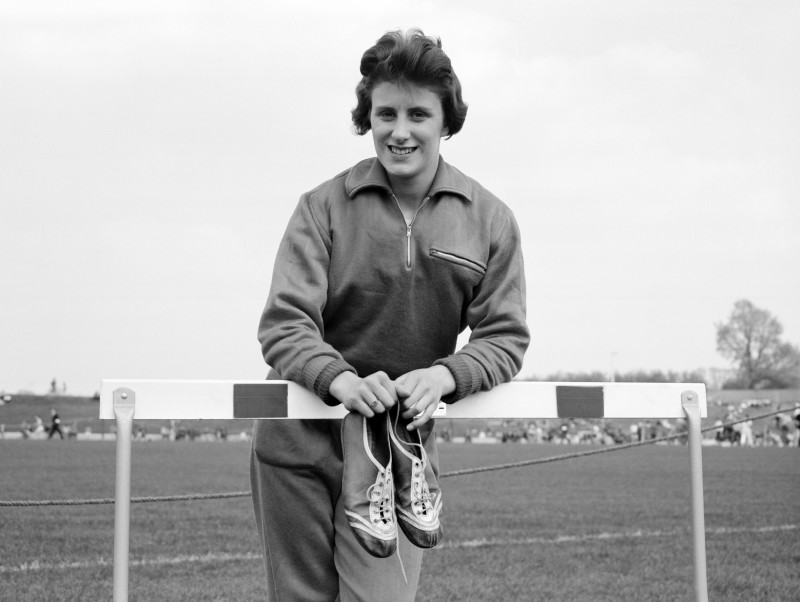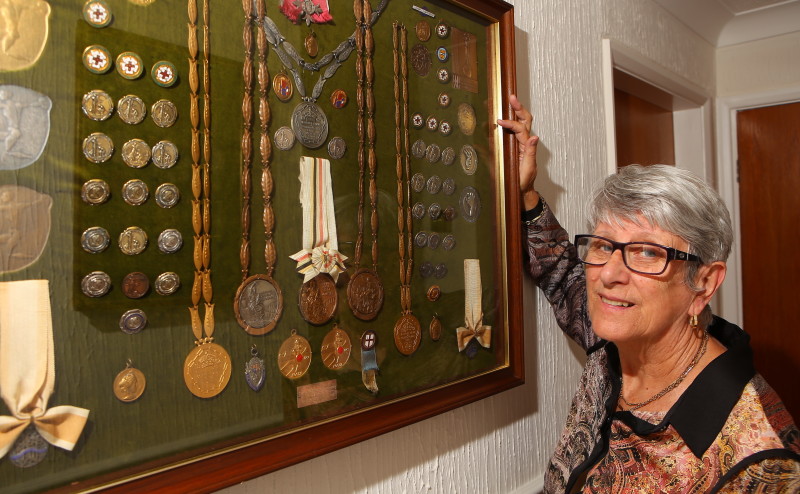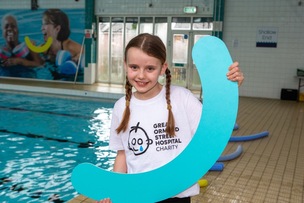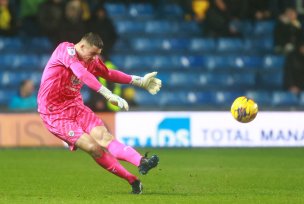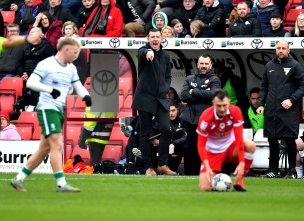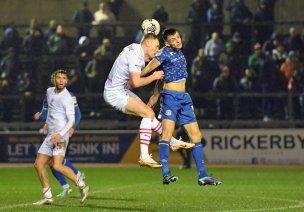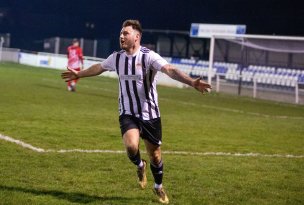Sixty years ago today, Dorothy Hyman returned to Cudworth as a 17-year-old sports star after helping the England women's relay team to gold at the 1958 Commonwealth Games in Cardiff.
Now 77 and living in Stairfoot, Dorothy looks back at the games as the event which kickstarted a career that saw her become European champion, a double Olympian and BBC Sports Personality of the Year before retiring aged just 23.
"Sixty years has gone by very quickly but I do remember Cardiff quite well," said Dorothy.
"It was a big adventure and it started my whole career. I was very young and quite naive. It was the first time I had been away without my dad so it was a bit daunting. The coaches and team managers all looked after me.
"It was a very big event. We hardly ever raced in stadiums so to suddenly be in one with a much bigger crowd than usual was very different. I was always nervous but this was probably the least nervous I ever got because I was so young and didn't really appreciate what I was doing. I just went and did it, I didn't really think about it."
Dorothy, who ran the second 110-yard leg of the four-woman relay, cannot remember many details about the race but does recall what she wore during the games.
"I didn't get my official tracksuit because there was another runner called Martin Hyman who picked it up by mistake. I had to wear a horrible blue baggy one and it's put me off tracksuits for life – I never wear them."
Hyman was also shocked when she returned to her family home in Bloemfontein Street in Cudworth. She said: "There was a street party going on. It was a complete surprise and I said: 'what's all this bunting for?' It was for me.
"The southern girls in the England team couldn't understand it because there were people in the same block of flats as them who didn't know who they were. Everyone seemed to know me in Cudworth. The fish man said his fish and chips made me run so fast and the grocer said it was his fruit and veg.
"The support of the local people is what made my career so special. I was always so excited to come back after going away to a competition."
The next month, Hyman was in the Great Britain relay team which won the silver medal at the European Championships in Sweden. She became a top individual sprinter at the 1960 Olympics in Rome, where she led the 100m final before being overtaken late on by American Wilma Rudolph. She also won bronze in the 200m.
"That Olympics was very, very special. I did much better than most people expected. My father Jack said said that, if I won gold, he would buy me a radiogram (a combined radio and record player). I got silver and bronze and I said to one of the other athletes 'do you think that will add up to a radiogram?' It did.
"It might not sound like much, compared to what sportspeople get these days, but I was a 19-year-old girl from Barnsley and it was fantastic for me."
Her success in Rome made Dorothy one of the biggest names in women's sprinting and she continued to improve over the next few years. In 1962 she won both the 100-yard and 220-yard races at the Commonwealth Games in Perth, Australia, where she just missed out on a golden hat-trick with a relay silver. Just weeks later she won the 100m European title in Belgrade, Yugoslavia while taking silver over 200m and bronze in the relay.
She said: "1962 was probably my most memorable year. My father had died in the May and, in his last few weeks, he told my mother: 'anybody who beats our Dorothy this year is going to have to go some.' I was so proud that he had that faith in me and that I managed to prove him right."
Dorothy's excellent form saw her voted second in the BBC Sports Personality of the Year behind swimmer Anita Lonsbrough. Hyman went one better the following year, winning the award after going unbeaten throughout 1963 and setting a European record for the 100m and world record in the relay.
"1963 was my best year and I was the fastest in the world. To win Sports Personality was a great honour. It was voted by the public."
Hyman's preparations for the 1964 Olympics in Tokyo were impaired by injury and she could only manage a bronze in the relay. She retired at the end of that year aged just 23 then wrote an autobiography called Sprint to Fame, which brought her £150 but meant she could never represent her country again because she was classed as a 'professional'.
"I felt at the time it was right to retire and I still feel it was now. I just knew it was right to move on. I didn't actually write the book, it was shadow written for me. It would perhaps have been better if my dad was still alive and he could have written it in his name instead. I don't regret it because it was my choice. I had a good career."
Hyman's story is extremely similar to another Barnsley athlete of the same era – shot putter Arthur Rowe, from Smithies, a former Olympian and European champion who was not allowed to represent his country again after a brief spell as a professional rugby league player. Hyman said: "I got on well with Arthur. He was one of the older athletes who always looked after me. We were from the same town so we had a good connection."
Dorothy worked as a tracer drawing plans for the coalboard for 30 years then worked in a day centre for children with learning difficulties for nine years before retiring in 2001.She continued coaching until the 1980s and, although she is no longer directly involved in the sport, she is still regularly invited back to the stadium in Cudworth which is named after her to present medals at athletics events.

